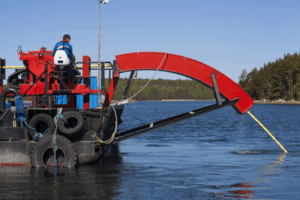In the ever-evolving energy sector, power market reforms have become a global imperative. From unbundling monopolistic structures to introducing competitive markets, the journey of transforming power sectors is a complex but essential one. Few individuals understand this journey better than Hans-Arild Bredesen, a seasoned expert in power market design and reform, whose career spans decades and continents.
Bredesen began his career in the 1992, working on market systems development at Nord Pool, the Nordic power exchange, where he eventually held top managerial positions including Senior Vice President and Managing Director for Nord Pool Consulting.
This experience, coupled with extensive exposure to various international energy markets, made him a globally sought-after consultant. In 2012, he established his own consulting firm, Bredesen Consulting, focusing on market reforms, regulation, trading and power market design, tailored to countries’ and regions’ specific conditions. He is also a well-known speaker at conferences and lectures at several universities.
Global Challenge, Local Solution
Traditionally, power sectors were dominated by single entities responsible for generation, transmission, and distribution. Over time, it became evident that unbundling these functions and introducing competition could yield significant benefits.
It is this transforming energy landscape where Bredesen’s expertise is required. The scope of Bredesen’s work includes collaboration with regulators, ministries, market operators, and energy companies, across regions as varied as Europe, US, Asia, and Africa, providing support across a whole range of areas, from IT architecture to business development to market design and rules for deregulated electricity markets.

“Our work is mainly focused on implementing power market reform strategies and following them through to operational markets. With hands-on experience from many markets around the world, we can provide solutions that have been proved to work in practice.”
“This is not to say that reforms don’t require hard work. If it were easy, it would’ve been done already. My job is to guide clients through the complexity of these technical, social, and economic intricacies, ensuring that the end result is both effective and sustainable.”
One of the hallmarks of Bredesen’s approach is his ability to adapt lessons from global markets to local contexts. He likens this process to copying a PowerPoint slide from one template to another. “Even if the original looks perfect, pasting it into a different template requires adjustments to make it work. The same applies to market reforms. You can’t simply copy-paste solutions; you need to tailor them to local conditions.”
The Success Stories
When asked about a success story he is particularly proud of, he remarks that rather than focusing on one project, the still ongoing market reforms in south-east Europe are a good example of the market reform processes in which he participates.
“We did a project that was called “South-east wholesale energy market opening” during 2008-11, targeting the opening of national markets in this region, with the ultimate goal of creating a regional market. Now most of the countries in the region have a national market, with some having created sub-regional markets/market operators. The aim, hopefully soon to be accomplished, is to join the European integrated market.”
Bredesen was heading the initial project and supported implementing the markets in Bulgaria, Croatia, Albania, Kosovo, Montenegro and North Macedonia. In addition, as a precursor to these, he was also engaged in the market reforms in Romania and Turkey.
“The same story is now unfolding in Africa,” he says. “I have been supporting the Southern African Power Pool since 2005 and been part of their journey towards becoming the leading power pool in Africa. I was leading their project on market design, market rules, capacity building and market trading platform implementation leading up to the launch later this year.”
“Following this, I have been supporting the national market reforms in Namibia, Zambia, Lesotho and Mozambique. Eastern African Power Pool will launch their regional power pool this year where coupling with Southern African Power Pool will enable the vision of trading from Cape to Cairo.”
Over the past five years, Bredesen has worked closely on the market reform processes in South Africa. He admits that the South African power sector is uniquely complex, referencing the well-known challenges of political hurdles, load shedding and corruption.
“Despite these challenges, progress is being made, albeit slowly. Introducing a market structure won’t solve systemic issues like corruption or social inequities, but it’s a tool that supports a step in the right direction. Success requires addressing these challenges in parallel,” he says.
A Vision for Empowerment
“All of these examples illustrate that these reforms take time, and that reform of a market is a process, not one simple project,” he emphasizes. “A word that summarizes this is ‘persistence’ – I think that really sums up reform of a market.”

“It is important to highlight that all of these reforms are led by people,” he continues. “Even though all market reforms (almost) start with a political decision, it is people that must implement them. In all the reform projects I have been in, I can very easily point out the few people that made it happen. Without these champions, the projects would fail to reach success.”
He admits that sustainability is increasingly at the core of power sector reforms, but it is not always as straightforward as it may seem. For instance, South Africa’s reliance on coal has created entire communities around mines and power plants. “Pulling the plug on coal without a plan could devastate these societies,” he points out. “Environmental goals need to be balanced with socio-economic realities.”
Despite the obvious challenges, the development on the African continent also has advantages, as its countries often leapfrogged traditional developmental stages by adopting innovative solutions, as demonstrated in the widespread use of mobile banking, which, in a way, happened sooner there than in Europe.
“Similarly, African nations are increasingly adopting decentralized energy solutions, such as solar installations combined with battery storage and water systems. In some ways, Africa might outpace other regions in implementing these solutions,” Bredesen observes.
Transformative Potential
What sets Bredesen apart is his track record of implemented projects. “Many consultants write reports, but few can point to real-world implementations. In the markets I’ve worked in, we’ve not only designed but also launched systems that are operational and effective,” he says, affirming that the future will involve more of the same—highly specialized consulting on power market reforms.
Going forward, he admits that he has no ambitions of expanding the company hiring, believing that the industry values expertise over size. “Clients hire me for my track record and knowledge, not for the size of my company. However, on all projects I always work with others, and the joint collaboration aims at creating tangible, impactful solutions that are implementable.
I have had a long-term and fruitful cooperation with the South African company Enerweb for a lot of the work in Africa, and globally I work with Nord Pool, Ricardo Energy Environment as well as FORRS Partners. It is also important to highlight the support from the donor community in promoting these market reforms.”
Reflecting on the future of power markets, Bredesen envisions greater consumer involvement. “We’re moving towards a model where individuals have more control over their energy usage. This may take time, and evolve at different pace in different countries, but the technology is there. There is no fit for all but the potential is transformative.”





